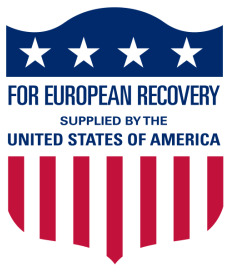 William Kapell, Van Cliburn, Glenn Gould, Leon Fleisher, Gary Graffman, Jacob Lateiner, Eugene Istomin. These were among post-World-War-II American piano ambassadors. In the 1930s and ’40s, so many artists, scientists, and intellectuals came to America. Then, in the ’50s, these American-trained, fresh faces went into the world to reread the Classical music canon, part of the accidental urban-renewal of European culture.
William Kapell, Van Cliburn, Glenn Gould, Leon Fleisher, Gary Graffman, Jacob Lateiner, Eugene Istomin. These were among post-World-War-II American piano ambassadors. In the 1930s and ’40s, so many artists, scientists, and intellectuals came to America. Then, in the ’50s, these American-trained, fresh faces went into the world to reread the Classical music canon, part of the accidental urban-renewal of European culture.
What happened next? To most of these musicians, harsh accidents and disabilities. The change in geopolitical climate, and the perception of the United States in particular. And the rise of the brave art future of Europe itself.
The usefulness of this Marshall Plan of piano playing was short-lived. So much so that by the end of the 20th Century, a leading German manager could ask me, “Can an American really play Beethoven?”

I’m sorry: are you really trying to tell me that Glenn Gould was an American-trained, American pianist? I will grant the US plenty of things, and plenty of game-changing pianists, too: but Glenn Gould was CANADIAN, and remarkably so.
http://en.wikipedia.org/wiki/Glenn_Gould
Bruce Brubaker:
Perhaps I missed something. Are you suggesting “American” can only mean “estadounidense”?
Glenn Gould is Canadian. We are very proud of him up here, and he himself identified very strongly with our vast northern landscape.
Love your blog!
Herbert Pauls, Winnipeg
Glenn Gould was Canadian, and had nothing to do with America, and avoided performances here.
Peter Rosen
Bruce Brubaker responds:
Greetings Peter. As far as I can tell Canada is still on the North American continent. And of course, the whole history of Gould’s public career and early recording life was tied to New York.
Yes, I guess your Canadian readers are trying to tell you that that’s exactly how we feel – most particularly when you’re associating “American” with the Marshall Plan and the stars and stripes.
Bruce Brubaker responds:
Thank you Katherine. I’m interrested in the European sense of this. Perhaps I am overpersonalizing, yet I was recalling the response of a musician who heard a recital (including music by Haydn) that I played in Paris. “Only a North American could play like that!,” said he.
Hello again,
For Canadians, there is a big difference between saying “America” and “North America”. I sometimes identify myself as North American but never as American. Also, having lived in Germany for three years, and having traveled quite a lot in Europe, I also know that when Europeans say “America” they generally mean the US. Otherwise they say “Canada”. Slipping the word “North” in changes the meaning considerably.
Just a technical matter! As a avid lover of all things piano, I look forward to your blogs!
Best, Herbert Pauls
How could a leading German concert manager not know the work of Richard Goode and Murray Perahia? Julius Katchens’ recordings of the Beethoven concerti, Diabelli Variations and Opus 111 have been re-released as CDs. The 2nd movement of 111 is extraordinary. He should be listed among the Marshall plan unfortunates, but Abbey Simon, who I believe is underrated, must be listed among the survivors.